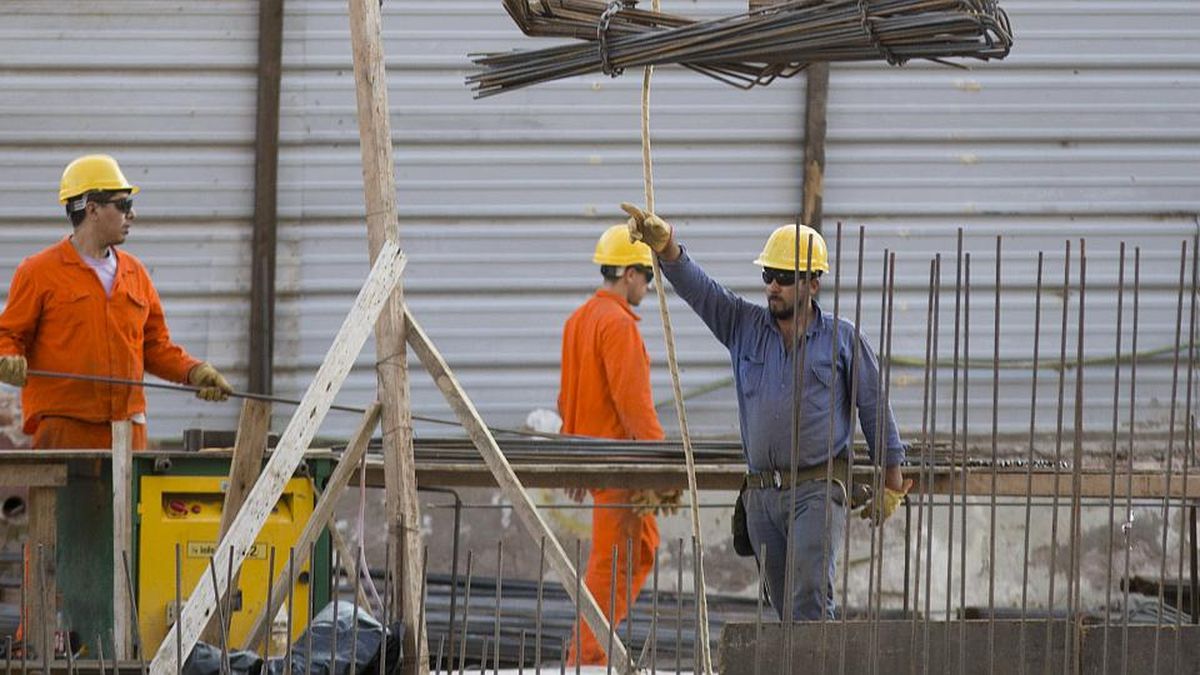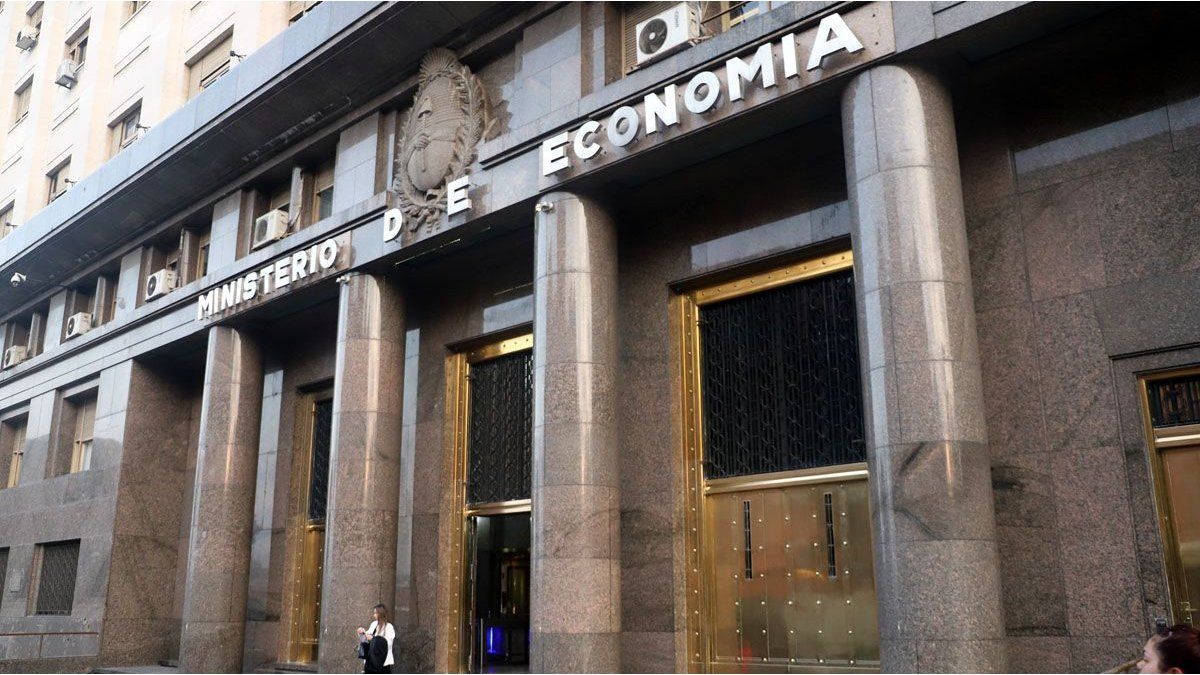Gustavo Idigoras, head of the Chamber of the oil industry and the center of cereal exporters (CIARA-CER), assured that The measures implemented by the Government of Javier Milei caused stability in the grain market which led to a greater pace of marketing by producers.
The liquidation of foreign exchange from agricultural exports is on track to close the month of November with record levels, which would be similar to those of the month of April, the strongest month at the beginning of the harvest. What is happening is absolutely unusual, in fact the eleventh month of the year is the one with the worst indicators in historical terms, because at this time of year the strongest of the thick harvest has already been marketed.
As far as he could know Scope, the data for November are in line with those for the month of October, and could even be even better. Last month, some US$2,553 million arrived thanks to the sales of the granary complex, which marked a growth of 243% versus the same month in 2023 and a jump of 2.9% compared to September.
Until last month, the Chamber of the Oil Industry and the Cereal Exporters Center (Ciara-CEC) had recorded the entry of foreign currency into the country for US$21,125,340,077 so far this year.
In dialogue with Ámbito, Gustavo Idigorashead of CIARA-CEC, assured that October was a very positive month in terms of producers’ grain sales volumes, particularly soybeans, and therefore the soybean grinding of that month was one of the highest in the history (for the reference period), that led to us being able to have a foreign exchange income of more than 2.5 billion dollars, but it also coincided with the fact that all ship loading logistics worked perfectly, which is absolutely atypical because There is always a problem, whether it is the maritime agency, the ship, the loading, the unloading, the truck, etc. but the truth is that everything worked perfectly and that is why we achieved that result. November is coming up very well, so I think we are also going to have another month with good indicators.
What is happening is not normal and although the explanation for this phenomenon is multi-causal, it cannot fail to be noted that the macroeconomic and financial stability that Argentina is experiencing in this final stretch of the year excites many within the agribusiness. This is reflected in the numbers mentioned and in a normalization of the market that everyone celebrates.
In this sense, Idigoras assured that “I always stated in public terms and also in the conversions with the different governments and ministries of economy that the main reason why the grain trade was distorted was due to the existence of an enormous exchange gap. and an expectation also of the movement of the exchange rate. Until now I had never experienced the inverse to be able to demonstrate if what I was saying was really true. To this day I can say that I actually believe that I was right all these years when I insisted on that, because we have a gap of 7%, we have an extremely stable exchange rate expectation for the coming months and that caused the grain market to normalized and now we look like a normal country. It is a quite atypical sensation that we have, of feeling normal.”
“We must recognize that the weather is with us and the final campaign seems to be going very well. Of course we have concerns, because we have been left with a cost structure that generates noise when it comes to margins for the producer, for the transporter and especially for the export industry, which are also quite tight, but at least we do not have inflationary expectations. “We have no expectation of movements in the exchange rate and we have no gap.”
The waterway under analysis
Last week the Government called for tenders to privatize the Hidrovía and make it more competitive. According to the ruling party, with a private concession scheme at business risk, the project promises to modernize infrastructure and improve logistics competitiveness.
While the governors of the provinces involved closely follow what is resolved regarding the assembly of the specifications, the private parties advance in the analysis of what has been proposed until now by the Undersecretariat of Ports and Navigable Waterways, which is the body that carries out the privatization. .
Regarding this issue, the head of CIARA-CER warned Ámbito that “the waterway is our highway to foreign trade, not only of export but of import, of everything that enters the country. For 20 years we have been talking with all governments to try to convince them that this highway was designed for the 90s, but it is not what we need now, when we have ships with greater draft, greater design, greater speed and, of course. , depth”.
“Beyond the call for bids, we are working on technical issues, because the specifications are very complex with very specific conditions.. We as users, together with other entities, are working on a very detailed and thorough review and we have already told the government that we see opportunities for improvement, because if the document is poorly written we mortgage the next 30 years. We have to try to have the best possible schedule, it is preferable not to close on January 21, think about February 28 and try to do something better,” he concluded.
The Milei government and withholdings
When asked about the present that Argentina is experiencing from the point of view of the economy and the measures that have an impact on the macroeconomy, Idigoras highlighted the results obtained by the Government in these 11 months of management. He detailed that “For a Minister of Economy or a president to tell us in January something like this is going to happen with the dollar, something else is going to happen with investment and we get to November and that is happening, I think it is applaudable and gives you a certain peace of mind as to look at the future.”
In any case, concern about what is going to happen regarding export duties is latent. Beyond the repeated requests from the entities that bring together producers (union or technical) it is important to note that the current price scenario conditions profitability in most cases, which affects all links in the production chain.
As Ámbito learned, in the private sector there are no expectations that this issue can be addressed in 2025, although it could be raised in the second half of Milei’s mandate. The claim has been the same for years: the countryside asks for the elimination of withholdings but for that to happen we will have to wait for the treatment of a bill that proposes it in the legislative sphere. In the meantime, one can only hope for a reduction that could boost executive power. This is what is expected given current international prices and those projected for next year, which will further complicate the situation for producers.
Source: Ambito
I’m a recent graduate of the University of Missouri with a degree in journalism. I started working as a news reporter for 24 Hours World about two years ago, and I’ve been writing articles ever since. My main focus is automotive news, but I’ve also written about politics, lifestyle, and entertainment.




